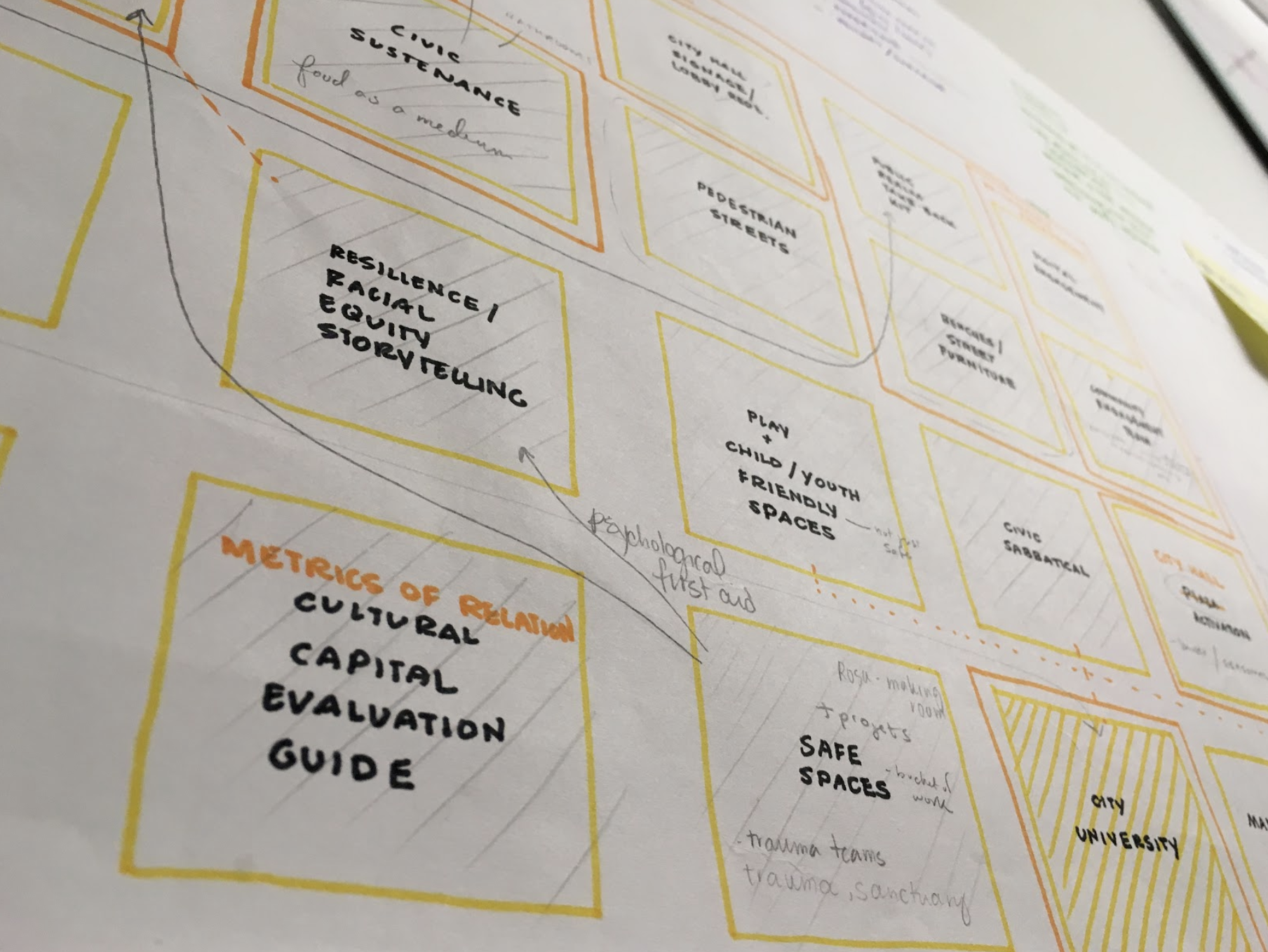Civic Research Agenda
A primer on the questions we're asking, the problems that stump us, and the partnerships we need.
We don’t know what we don’t know. And so, we’re sharing our unanswered questions in the form of this Civic Research Agenda with the hope that someone with a different perspective might find a shared question or challenge our assumptions. We want to learn more, and we want to learn with you.
Read below to learn a little more about why we're publishing a Civic Research Agenda. But if you'd like to go straight to it:
What we're doing
Here are some things we do know:
- The heart of research is conversation.
- Research is a debate, a dialogue.
- Research is interacting with learning and knowledge and skill to discover things we would have never discovered alone.
- Research requires more than one brain, more than one set of experiences, more than one kind of skill.
So let’s talk!
What is Civic Research?
You may be wondering what exactly we mean by "civic research." Here is one definition we find useful:
Civic Research is the shaping of knowledge about a community by that community. It is both a process (participatory and action-oriented) and a product (the study of civic life) that is directly meaningful to those who partake in it. It informs how a community imagines and builds itself.
To us, this means that civic research is a conversation, and that observations and experiences count just as much as hard numbers do.
We think civic research democratizes the research process. It does this by:
- inviting everyone in
- shifting the focus to all of our questions, and
- using our collective experiences, skills, and expertise to serve the common good.
Why a research agenda?
We at New Urban Mechanics want to learn more about our City and its people, and we have a lot of questions. We don’t know how to answer many of those questions, but we do know that when we team up with others, the answers become clearer. We would like to pursue learning about Boston with you. To do this, we don’t need to sit in a classroom or have a fancy string of letters that follow our names. All we need are folks with experience and expertise to share in our questions, challenge our assumptions, and create new ways to serve the people of Boston.
Let's get started!
So where do we begin? We heard from our current partners that it’s hard to know which questions we wish we could answer. In an attempt to better articulate what’s on our minds, we’d like to introduce the first volume of our Research Agenda.
By putting this out into the world, we hope that you might find something that causes you to say, "Hey! I have something to say about that!" ...and then we hope that you’ll join our conversation. (Or maybe we can join yours?) Email us at newurbanmechanics@boston.gov.
Research Initiatives
Our 2018 Civic Research Agenda has a Creative Commons Attribution-NoDerivatives license. ![]()



